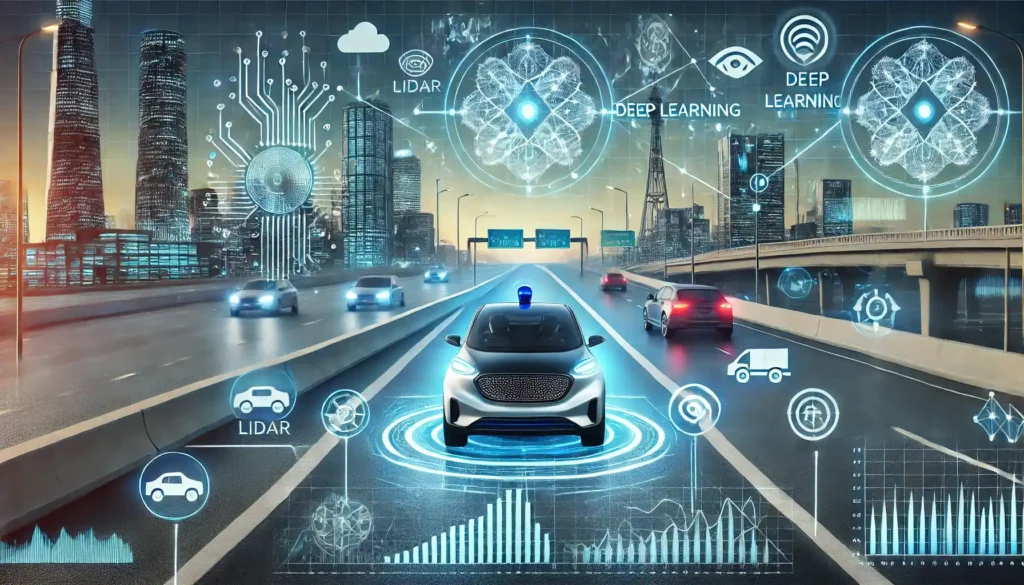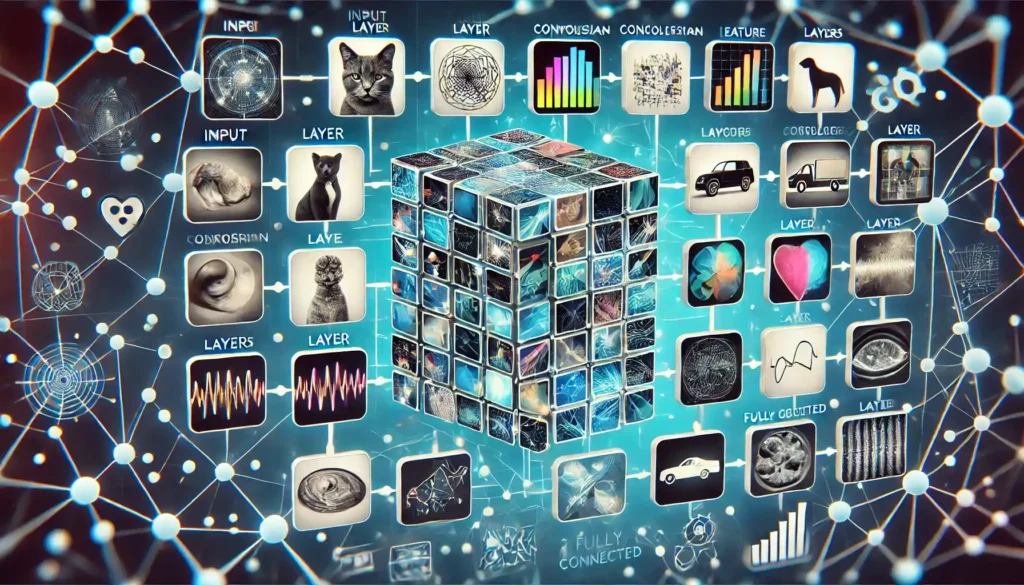Artificial General Intelligence (AGI) represents a groundbreaking frontier in artificial intelligence (AI), far beyond the capabilities of today’s narrow AI systems. While narrow AI excels at specific tasks such as image recognition or natural language processing, AGI aspires to mimic human cognitive abilities, offering flexibility and adaptability across a broad range of tasks. In the context of healthcare, AGI holds incredible promise for transforming how diseases are diagnosed, treated, and managed. This blog explores how AGI could revolutionize healthcare and some potential applications that could redefine the medical landscape.
What is AGI?
Related Posts:
Before diving into the applications, it’s essential to understand the fundamental difference between AGI and the AI technologies currently in use. Today’s AI systems are highly specialized, meaning they are trained to perform specific tasks within a confined domain. For example, an AI system that identifies lung cancer from X-rays cannot simultaneously perform tasks unrelated to that specific application, such as diagnosing a completely different condition like diabetes.
AGI, on the other hand, would possess general cognitive abilities similar to a human. It could understand, learn, and apply knowledge across different contexts without requiring task-specific training. AGI is envisioned as a form of intelligence that can reason, solve problems, and adapt in various scenarios, whether it’s interpreting medical images or recommending treatment based on patient data.
AGI’s Role in Revolutionizing Healthcare
The potential impact of AGI on healthcare could be transformative, unlocking capabilities that go well beyond what we currently achieve with AI. Here are several areas where AGI could be applied:
1. Personalized Medicine
One of the most exciting applications of AGI in healthcare is the advancement of personalized medicine. AGI could process vast amounts of data from various sources—genetic information, medical histories, lifestyle factors, and environmental data—and use it to tailor treatments specific to individual patients. While today’s AI can process specific datasets for personalized medicine, AGI could draw on a broader range of knowledge, dynamically integrating new data and learning patterns that aren’t easily recognizable to humans.
For instance, AGI could analyze the genetic code of a cancer patient, along with their medical history and lifestyle, to create a treatment regimen that is not only tailored to their current condition but also adaptable as their condition changes. Over time, it could monitor their response to treatment and adjust as necessary in real time, making healthcare more responsive and dynamic.
2. Enhanced Diagnostics and Early Detection
One of the most promising areas where AGI could make an impact is in the field of diagnostics. Today’s AI systems are already improving diagnostic accuracy in areas like radiology and pathology, but AGI could take this to a whole new level by synthesizing information from multiple sources in real-time.
Imagine an AGI system that can not only analyze a patient’s lab results but also interpret their electronic health records (EHR), genetic information, and even real-time data from wearable health devices. By combining these different streams of data, AGI could detect diseases earlier than ever before, possibly identifying subtle patterns that narrow AI systems might overlook.
Early diagnosis of complex diseases like cancer, Alzheimer’s, or heart disease could significantly improve treatment outcomes, leading to longer, healthier lives for patients. Furthermore, AGI could help reduce human error in diagnostics, which remains a critical issue in healthcare.
3. Robotics-Assisted Surgery and Treatment
In surgical applications, robots are already playing a role in assisting with precision-based tasks. However, these robots are still limited by the specific algorithms programmed into them. AGI could introduce a new era of robotics in surgery where machines could perform highly complex procedures with minimal human intervention.
With AGI, robotic systems could learn from previous surgical experiences and continuously improve their techniques. These systems would adapt in real time, making intraoperative decisions based on the patient’s condition, which would be analyzed continuously during the surgery. The potential for AGI-powered robots to perform highly complex surgeries with extreme precision, potentially reducing recovery times and improving success rates, is an exciting prospect for healthcare professionals and patients alike.
4. Drug Discovery and Development
The process of developing new drugs is time-consuming, costly, and often fraught with failure. AGI has the potential to significantly accelerate this process by simulating drug interactions, predicting outcomes, and even designing new drugs from scratch. By analyzing millions of compounds and running virtual simulations of how these compounds interact with human biology, AGI could identify promising candidates in a fraction of the time that traditional methods take.
In addition to drug discovery, AGI could also assist in personalized treatment plans by evaluating how specific drugs would interact with an individual’s genetic makeup or existing conditions. This could minimize side effects and ensure that treatments are not only effective but also safe for the patient’s unique physiology.
5. Mental Health Treatment and Emotional Support
Mental health is a growing concern worldwide, and current AI tools, like chatbots or virtual therapists, provide some level of support. However, these systems are limited by their narrow understanding of emotional and psychological complexities. AGI, with its potential to reason and adapt like a human, could revolutionize mental health care.
AGI could become a highly sophisticated companion in therapy, capable of providing nuanced emotional support while analyzing a patient’s mental health in real-time. It could recommend treatments, adjust those recommendations based on patient feedback, and even predict episodes of mental health deterioration before they occur. The ability of AGI to understand emotions and complex human behavior would allow for more empathetic and personalized mental health care, filling a significant gap in the current system.
6. Healthcare Administration and Policy Formulation
Beyond direct patient care, AGI could streamline healthcare administration by optimizing scheduling, reducing wait times, and managing the logistics of healthcare systems. Its ability to integrate various forms of data and predict outcomes could also aid in healthcare policy formulation.
For example, AGI could analyze healthcare usage trends, socioeconomic factors, and population health data to suggest policies that would improve public health. This could be particularly valuable in managing pandemics or other public health crises, where rapid, informed decision-making is crucial.
Challenges and Ethical Considerations
While AGI offers numerous potential benefits, its development in healthcare is not without challenges. One of the primary concerns is the ethical implications of entrusting machines with human lives. How do we ensure that AGI makes decisions that prioritize patient welfare? Additionally, there is the challenge of data privacy, as AGI would require access to sensitive personal health data to function effectively.
Another significant concern is accountability. If an AGI system makes an incorrect diagnosis or treatment decision, who is held responsible? These are complex issues that require careful consideration and the development of stringent regulatory frameworks.
There’s also the risk of over-reliance on AGI systems, potentially undermining the role of human healthcare professionals. While AGI could augment human capabilities, it’s crucial to maintain a balance where humans and machines work together, with the final decision-making power remaining with trained professionals.
Conclusion
The integration of AGI into healthcare could be one of the most profound technological shifts in the history of medicine. From personalized treatment plans to advanced diagnostics and robotics-assisted surgery, AGI promises to make healthcare more efficient, accurate, and personalized. However, realizing these benefits will require addressing ethical, legal, and practical challenges to ensure that this powerful technology is used responsibly and equitably.
While AGI remains in the realm of future technology, its potential applications in healthcare are vast and transformative, offering a vision of a medical future where disease is detected earlier, treatments are more effective, and patients enjoy better outcomes. The journey toward AGI in healthcare may be long, but its potential to save lives and improve human health makes it a pursuit worth investing in.

